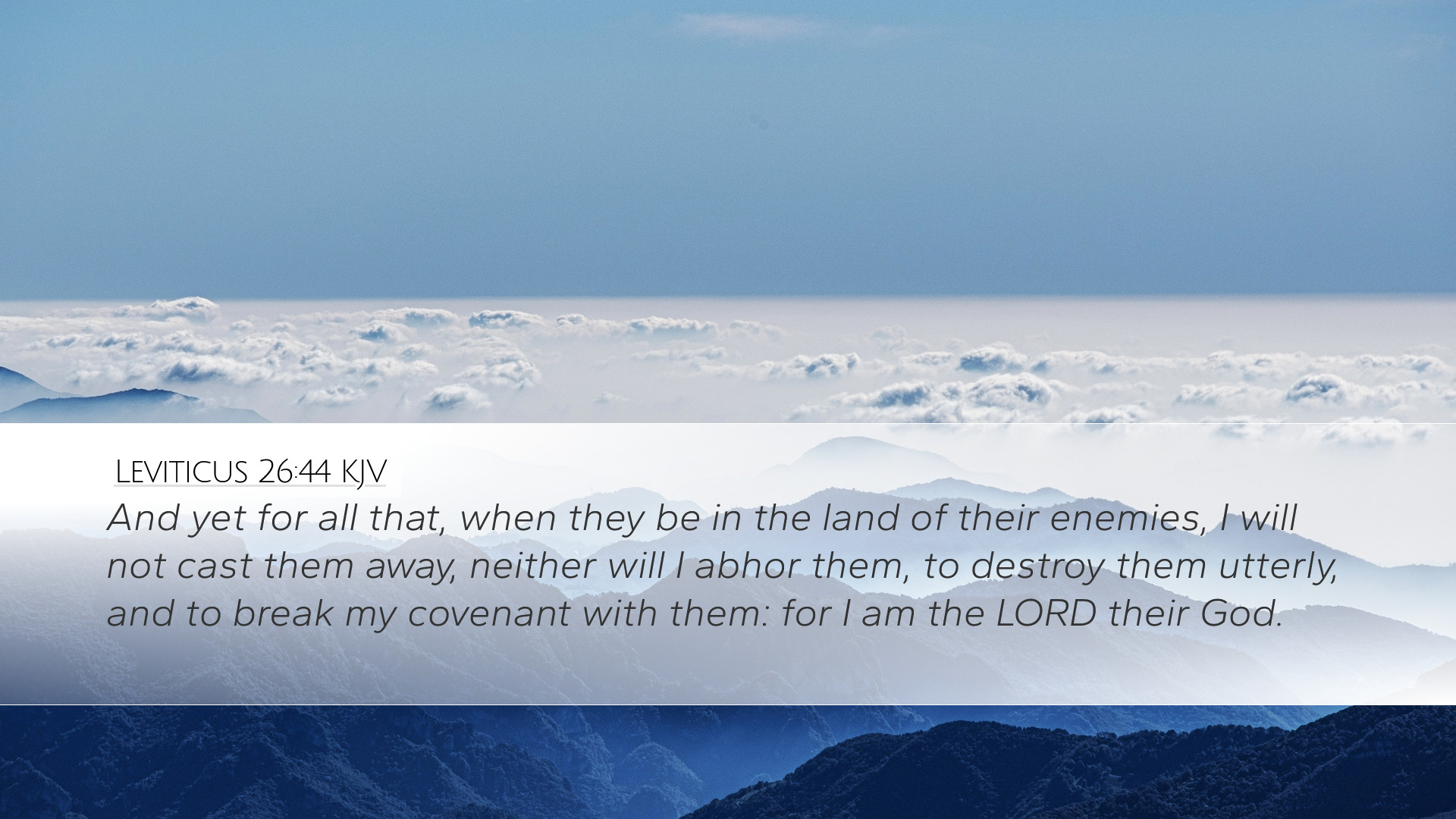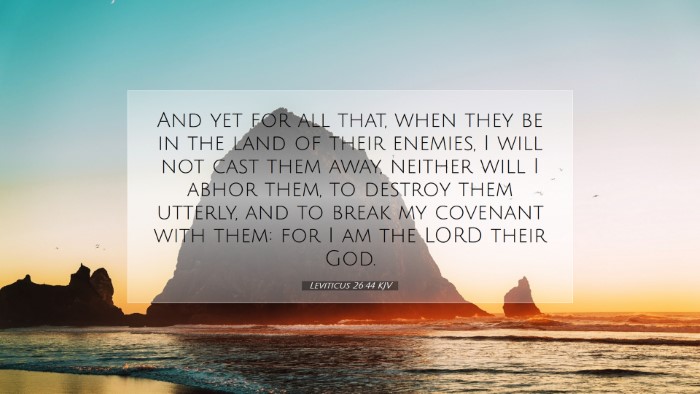Commentary on Leviticus 26:44
Leviticus 26:44 states, "Yet for all that, when they be in the land of their enemies, I will not cast them away, neither will I abhor them, to destroy them utterly, and to break my covenant with them: for I am the LORD their God."
Understanding the Context
The chapter as a whole outlines the blessings of obedience and the curses of disobedience. It is particularly important to note that this verse, amidst a declaration of curses upon Israel, serves as a beacon of hope. God reassures His people of His unyielding commitment to them, even in times of judgment.
Insights from Public Domain Commentaries
Matthew Henry's Commentary
Matthew Henry emphasizes God's faithfulness and mercy as key themes in this verse. He notes that despite Israel's disobedience and the subsequent curses they face, God’s covenant is everlasting. Henry writes, "His covenant with them is not broken by their provocations; for He will not cast them off despite their sin."
This commentary highlights God's nature: He is both just and merciful. Although punishment may come due to rebellion against God, His loyalty remains intact. Henry elaborates that this assures the Israelites that God retains compassion even in their captivity.
Albert Barnes' Notes on the Bible
Albert Barnes offers a theological perspective on the enduring nature of God’s covenant. He underscores that God’s relationship with Israel is not contingent upon their faithfulness. Barnes states, "The unfaithfulness of man does not frustrate the divine purpose nor nullify the covenant."
He explains that even when Israel is in the land of their enemies, they are not forsaken. The idea of God ‘not casting them away’ is a poignant reminder that God’s election and promises endure beyond human failures. Barnes interprets this phrase to mean that God's love and plans are sovereign and cannot be overturned by Israel's disobedience.
Adam Clarke's Commentary
Adam Clarke offers a practical application of this promise. He defines "casting away" as God neither relinquishing His people nor holding contempt for them, even when they face the consequences of their sin. Clarke emphasizes that God’s maintaining the covenant, despite Israel’s failures, speaks volumes about His grace.
Clarke writes, "Though they should be driven into a strange land, and should suffer great afflictions, yet I will not cast them off; they shall still be my people." Here, Clarke indicates that God’s commitment is not only to forgive but also to restore, emphasizing the future hope of redemption.
Theological Implications
This passage illustrates profound theological implications regarding God's nature, covenant, and grace:
- God's Faithfulness: Highlights that God remains faithful regardless of human actions.
- Covenantal Loyalty: The enduring covenant signifies an unbroken relationship that transcends human unfaithfulness.
- Hope in Despair: Even in dire circumstances, believers can find hope in God’s promises that He will not abandon them.
- Understanding Divine Justice and Mercy: The duality of God's character as a just judge and a merciful savior is vividly illustrated.
Pastoral Application
For pastors and biblical teachers, Leviticus 26:44 can be a focal point for preaching on God's faithfulness. It serves as a reminder to congregations that even in times of personal or communal failure, God’s promises stand firm.
Moreover, this verse encourages leaders to advocate for hope and reconciliation, underscoring the importance of restoring individuals within the community of faith. The eventual restoration promised by God can be a key theme in sermons that address the struggles of believers today.
Conclusion
Leviticus 26:44 offers rich theological insights and profound encouragement. Through the voices of noted biblical commentators, we see that God’s love, grace, and commitment to His people are unwavering. This verse serves as a poignant reminder that no matter the situation, God’s covenant stands as a beacon of hope and a testament to His enduring faithfulness.


